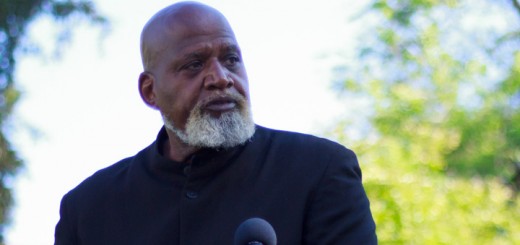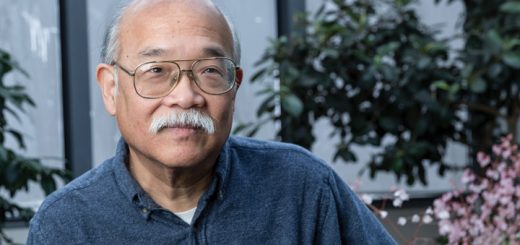Alumni Healthcare Leaders: Bob McRae
The nation’s complex and hotly debated healthcare system affects us all. Washington Square wanted to hear from alumni insiders who are shaping the industry—from hospitals and biotech companies to medical devices and research and development.
Here is our full conversation with Bob McRae, ’02 Mechanical Engineering, chief technical officer of Semler Scientific. Read Q&As with all 10 alumni healthcare leaders.
What brought you to San Jose State?
I joined the Navy after high school and was stationed out of Moffett Field, where I started going to school at De Anza College at night. I knew I wanted to get a bachelor’s degree and San Jose State seemed to be the next logical step for me.
What would want people to know about San Jose State?
It’s a good university that offers folks access to a solid education. Over the years, it’s maintained a very good reputation in that regard.
What inspired you to work in healthcare?
I think it had to do with mostly the recruiting efforts of my first employer out of school, Stryker Endoscopy. They had pretty active recruitment activity on campus, and they also had a lot of former military folks that they tended to target. As a mechanical engineer, I worked on their endoscopes line: laparoscopes and arthroscopes. Once you get started in the industry, you tend to develop an expertise and understanding of all the various intricacies of the system; that was a big ballast that kept me in the industry.
As I’ve gotten more involved in healthcare, it’s been very rewarding in that it’s more than just a commercial activity. It’s also helping people, and that’s become more and more what keeps me in healthcare. My mom was a nurse. Perhaps that was an influence.
What is the biggest challenge with the U.S. healthcare system today?
We have a growing epidemic of obesity and, in general, poor health. A lot of it is lifestyle choices. Physicians need to show patients the importance of changing what they can—exercising, stopping smoking, perhaps going on statins, for example—early on in the disease progression, before they end up having a heart attack or a stroke.
How is Semler Scientific addressing a major patient need?
Cardiologists generally see people who already have heart disease, so we developed a technology that a general family practice physician could use identify these folks a decade or two earlier in their disease process—and help them change their lifestyle to avoid disease.
Our technology takes a 15-second measurement and uses a proprietary algorithm to detect whether there is peripheral arterial disease. But it doesn’t take the highly skilled technician to use the specialized equipment. And the calculations are performed instantly, so you’ll know in one minute whether you have disease or not.
What skills do you look for in your workforce?
As a virtual company, we all work remotely. My commute is the best I’ve ever had. I walk down my stairs and get to work! Because of the remote work, the profile of the employee that we’re looking for is very different. A person needs to be independent and ultra-responsive, because you can’t just walk down the hall and go talk to somebody. You need to be able to reach them, even at odd hours of the day or weekends. And I’ve always looked for great attention to detail. Especially in a small company, every person has a critical role.
What is working well in healthcare today?
The proliferation of technology is working well to some degree. There are some players who are more focused on profit than providing care. But I believe that we’ve seen a good adoption of technology in the healthcare industry, as well as advances in treating people and ensuring that they stay healthier.
How did San Jose State prepare you for your career?
Beyond the curriculum, I would say it was also helpful working in groups, and I saw that even more so during my MBA. You’re always going to be working with other people, and you need to figure out how to do that.
What advice would you give patients or caregivers who are navigating the healthcare system?
For patients: Become the expert in whatever you need help with, because you need to be your own health advocate.
If you could share one message with your fellow alumni, what would that be?
Keep learning. Keep having fun.

“Become the expert in whatever you need help with, because you need to be your own health advocate.”



